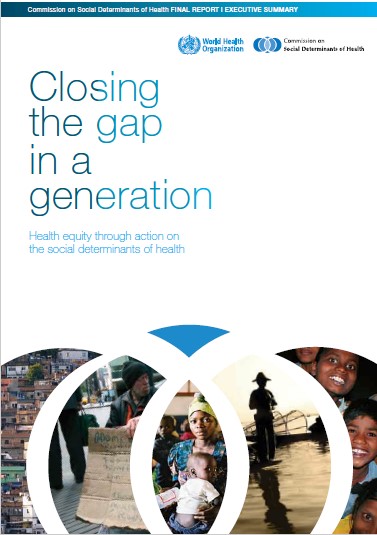United for Global Mental Health
4th Global Mental Health Advocacy Forum: Key Learnings and Take-Home Messages for Mental Health Advocates from the Forum’s Plenary Sessions
Report
05 Feb 2026
20 Feb 2023

Social justice is a matter of life and death. It affects the way people live, their consequent chance of illness, and their risk of premature death. We watch in wonder as life expectancy and good health continue to increase in parts of the world and in alarm as they fail to improve in others. A girl born today can expect to live for more than 80 years if she is born in some countries – but less than 45 years if she is born in others. Within countries there are dramatic differences in health that are closely linked with degrees of social disadvantage.
Differences of this magnitude, within and between countries, simply should never happen. These inequities in health, avoidable health inequalities, arise because of the circumstances in which people grow, live, work, and age, and the systems put in place to deal with illness. The conditions in which people live and die are, in turn, shaped by political, social, and economic forces. Social and economic policies have a determining impact on whether a child can grow and develop to its full potential and live a flourishing life, or whether its life will be blighted. Increasingly the nature of the health problems rich and poor countries have to solve are converging.
The development of a society, rich or poor, can be judged by the quality of its population’s health, how fairly health is distributed across the social spectrum, and the degree of protection provided from disadvantage as a result of ill-health. In the spirit of social justice, the Commission on Social Determinants of Health was set up by the World Health Organization (WHO) in 2005 to marshal the evidence on what can be done to promote health equity, and to foster a global movement to achieve it. As the Commission has done its work, several countries and agencies have become partners seeking to frame policies and programmes, across the whole of society, that influence the social determinants of health and improve health equity. These countries and partners are in the forefront of a global movement.
The Commission calls on the WHO and all governments to lead global action on the social determinants of health with the aim of achieving health equity. It is essential that governments, civil society, WHO, and other global organizations now come together in taking action to improve the lives of the world’s citizens. Achieving health equity within a generation is achievable, it is the right thing to do, and now is the right time to do it.